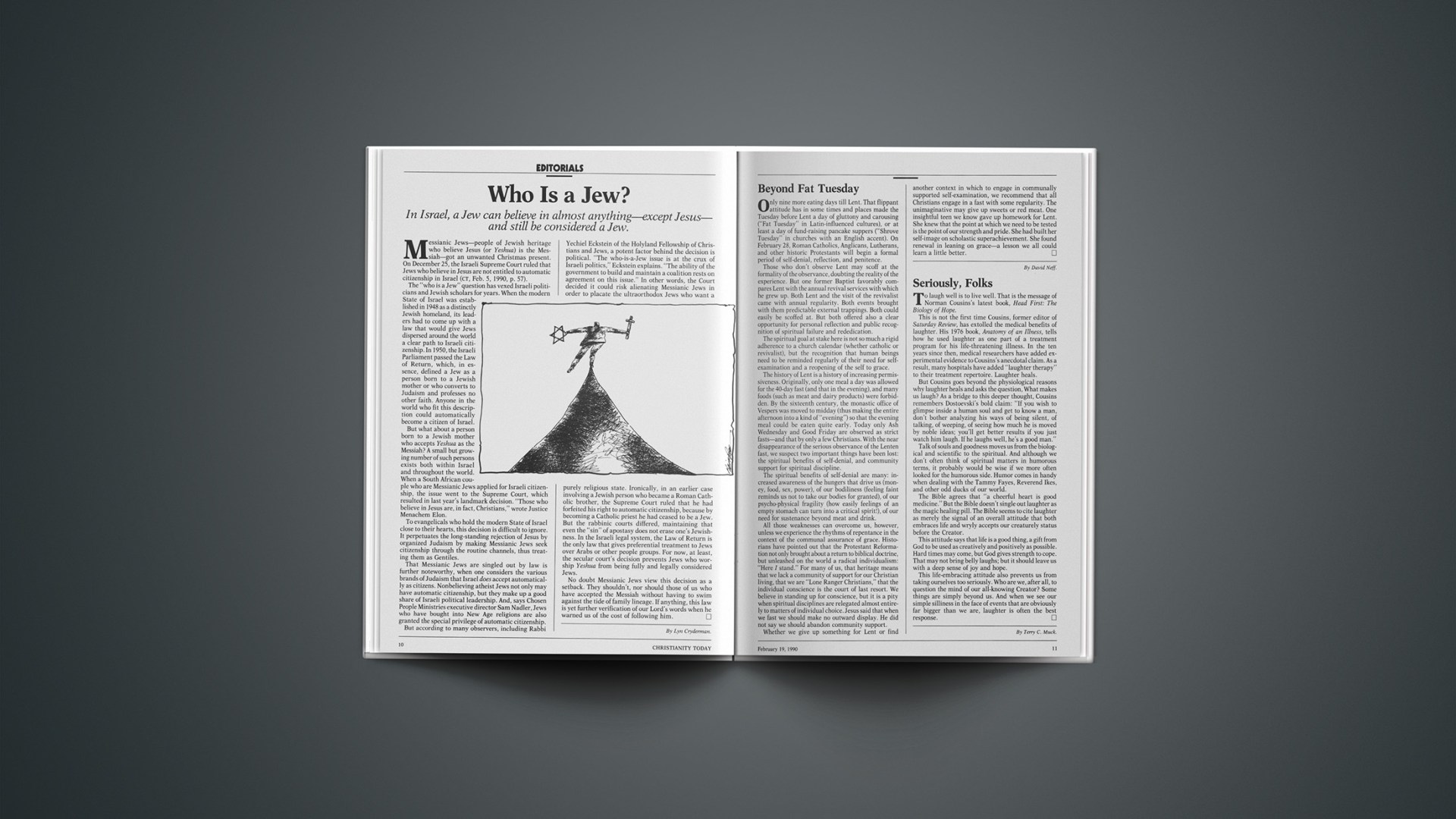Only nine more eating days till Lent. That flippant attitude has in some times and places made the Tuesday before Lent a day of gluttony and carousing (“Fat Tuesday” in Latin-influenced cultures), or at least a day of fund-raising pancake suppers (“Shrove Tuesday” in churches with an English accent). On February 28, Roman Catholics, Anglicans, Lutherans, and other historic Protestants will begin a formal period of self-denial, reflection, and penitence.
Those who don’t observe Lent may scoff at the formality of the observance, doubting the reality of the experience. But one former Baptist favorably compares Lent with the annual revival services with which he grew up. Both Lent and the visit of the revivalist came with annual regularity. Both events brought with them predictable external trappings. Both could easily be scoffed at. But both offered also a clear opportunity for personal reflection and public recognition of spiritual failure and rededication.
The spiritual goal at stake here is not so much a rigid adherence to a church calendar (whether catholic or revivalist), but the recognition that human beings need to be reminded regularly of their need for self-examination and a reopening of the self to grace.
The history of Lent is a history of increasing permissiveness. Originally, only one meal a day was allowed for the 40-day fast (and that in the evening), and many foods (such as meat and dairy products) were forbidden. By the sixteenth century, the monastic office of Vespers was moved to midday (thus making the entire afternoon into a kind of “evening”) so that the evening meal could be eaten quite early. Today only Ash Wednesday and Good Friday are observed as strict fasts—and that by only a few Christians. With the near disappearance of the serious observance of the Lenten fast, we suspect two important things have been lost: the spiritual benefits of self-denial, and community support for spiritual discipline.
The spiritual benefits of self-denial are many: increased awareness of the hungers that drive us (money, food, sex, power), of our bodiliness (feeling faint reminds us not to take our bodies for granted), of our psycho-physical fragility (how easily feelings of an empty stomach can turn into a critical spirit!), of our need for sustenance beyond meat and drink.
All those weaknesses can overcome us, however, unless we experience the rhythms of repentance in the context of the communal assurance of grace. Historians have pointed out that the Protestant Reformation not only brought about a return to biblical doctrine, but unleashed on the world a radical individualism: “Here I stand.” For many of us, that heritage means that we lack a community of support for our Christian living, that we are “Lone Ranger Christians,” that the individual conscience is the court of last resort. We believe in standing up for conscience, but it is a pity when spiritual disciplines are relegated almost entirely to matters of individual choice. Jesus said that when we fast we should make no outward display. He did not say we should abandon community support.
Whether we give up something for Lent or find another context in which to engage in communally supported self-examination, we recommend that all Christians engage in a fast with some regularity. The unimaginative may give up sweets or red meat. One insightful teen we know gave up homework for Lent. She knew that the point at which we need to be tested is the point of our strength and pride. She had built her self-image on scholastic superachievement. She found renewal in leaning on grace—a lesson we all could learn a little better.
By David Neff.










